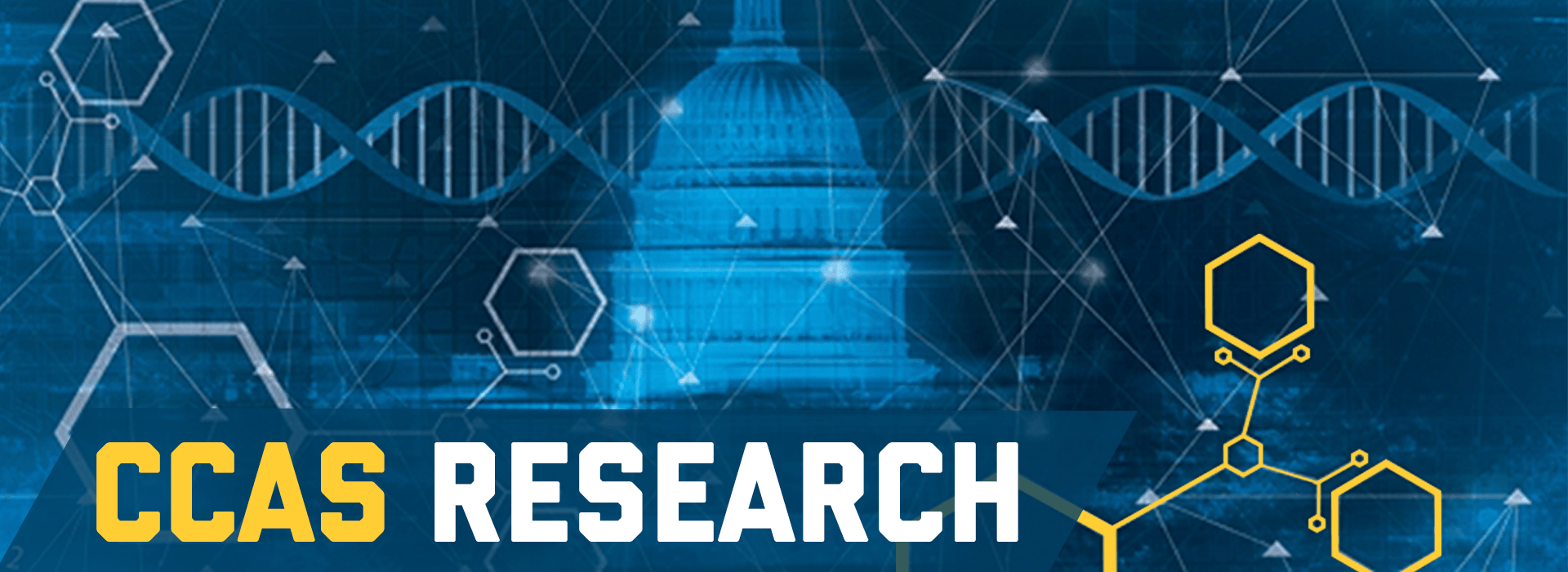This page explains the policies and procedures for support within CCAS when appointing students as Graduate Research Assistants (GRAs) on grants, and budget structures required when including GRAs on grant proposals. Full details about general university structures and policies regarding supporting graduate students on grants can be found in this OVPR document. Please note that the 2/3 tuition support is now provided by the college, rather than centrally by OGSAF, but in other details, the OVPR document remains accurate.
CCAS Graduate Student Funding on Grants
The tuition support outlined here assumes that:
- the PI of the grant is a CCAS budgeted faculty member,
- the grant, or grant task (for multi-school efforts), on which the student will be supported is run through CCAS, and
- the student to be supported by the GRA position is a CCAS student.
In any cases which do not fulfill all three conditions, the PI should reach out to the CCAS Office of Graduate Studies to discuss the situation, cc’ing their department chair and ccasres@gwu.edu.
If the above three criteria are satisfied, the college will provide 2/3 of the required tuition credits, up to 12 credits per academic year, on condition that:
- the PI’s grant which primarily supports the student has indirect costs at the full, on-campus indirect rate (currently 61.5%);
- the PI supplies the students with:
- At least 9 months’ salary at or above the current college TA monthly rate for their level (currently $17,800 / 9 months for Masters students; $28,300 / 9 months for PhD students);
- 1/3 of the tuition cost (up to a maximum of six credits per year);
- the PI’s obligations are satisfied by any combination of REIA, directly charging the grant on which the student is primarily supported, or any other external funding, but not from either departmental or college sources, other than REIA.
The college tuition match is provided on a semester-by-semester basis, so the conditions must be met for a minimum of one full regular semester (Fall or Spring) in order to qualify for support. Within that full regular semester, the student must receive GRA support equivalent to 50% of the 9-month support level, which translates to $8,900 for Masters students and $14,150 for PhD students in AY 24/25.
Escalation of tuition cost has typically occurred at a rate of approximately 4% per year. This should be accounted for when budgeting.
Indirect Cost Return on Graduate Research Assistants
As recorded on OVPR’s REIA description, the full indirect cost charged on the salary and fringe of any GRA appointment at the full negotiated federal indirect rate (currently 61.5% on-campus, 38.5% other sponsored activity, or 26% off-campus), will be returned to the PI in their annual REIA award. REIA is calculated at the end of the fiscal year, based on the indirect costs charged during the fiscal year, and is typically received in late summer for the preceding fiscal year.
In cases where REIA will fund some part of a student’s package (either tuition or salary) there are mechanisms to mitigate the fact that REIA is awarded at the end of the year, but salary needs to be paid throughout the year, and tuition is charged at the beginning. Your department administration is typically able to assist in this.
Please note that when covering part of an appointment on REIA, the fringe rate charged on the REIA part of salary is determined not by the prevailing federally negotiated rate, but by the current GWU internal fringe rate, which may be different. An explanation of those differences is provided here.
Graduate Research Assistant Salary Levels
We do not cap the maximum salary that can be paid to a GRA. However, we do require that the minimum salary for a GRA be at least equal to the current total value of the college GTA packages ($17,800 or $28,300 over nine months in FY24). This requires a monthly salary of 1/9 of the GTA package level ($1,978 (Masters) or $3,144 (PhD)) sustained throughout the academic year.
Appointments may be made over the summer at a different rate, if desired. However, please take into account that the living expenses of your GRA stay constant throughout the year. Furthermore, we would encourage you to consider how it looks to an external sponsor to be charged different rates for the same effort at different times of the year. We would therefore encourage you to, where possible, maintain at least the minimum academic year rate over the summer.
We require that you match the currently prevailing CCAS GTA rate in GRA appointments as otherwise moving from GTA to GRA positions disadvantages students. We require that PIs budget for at least a 4.5% escalation of that rate in proposals as we anticipate that the CCAS GTA rate will continue to improve with time, and PIs need to budget to allow, at the minimum, agreement with that rate.
In cases where a student is moving onto a GRA package from a Columbian Fellowship, where necessary, the college will provide a “top-up” of the GRA to the level of the Columbian Fellowship during the academic year (Fall and Spring only), for the five-year term of the initial appointment.
Other Mechanisms of Support
Students may be supported by other means, such as hourly paid Graduate Assistantships, on grants. In all cases, work may not exceed 20 hours per week. It should also be noted that OVPR’s REIA rules do not provide full indirect cost return on such appointments and CCAS does not provide tuition match in such cases.

